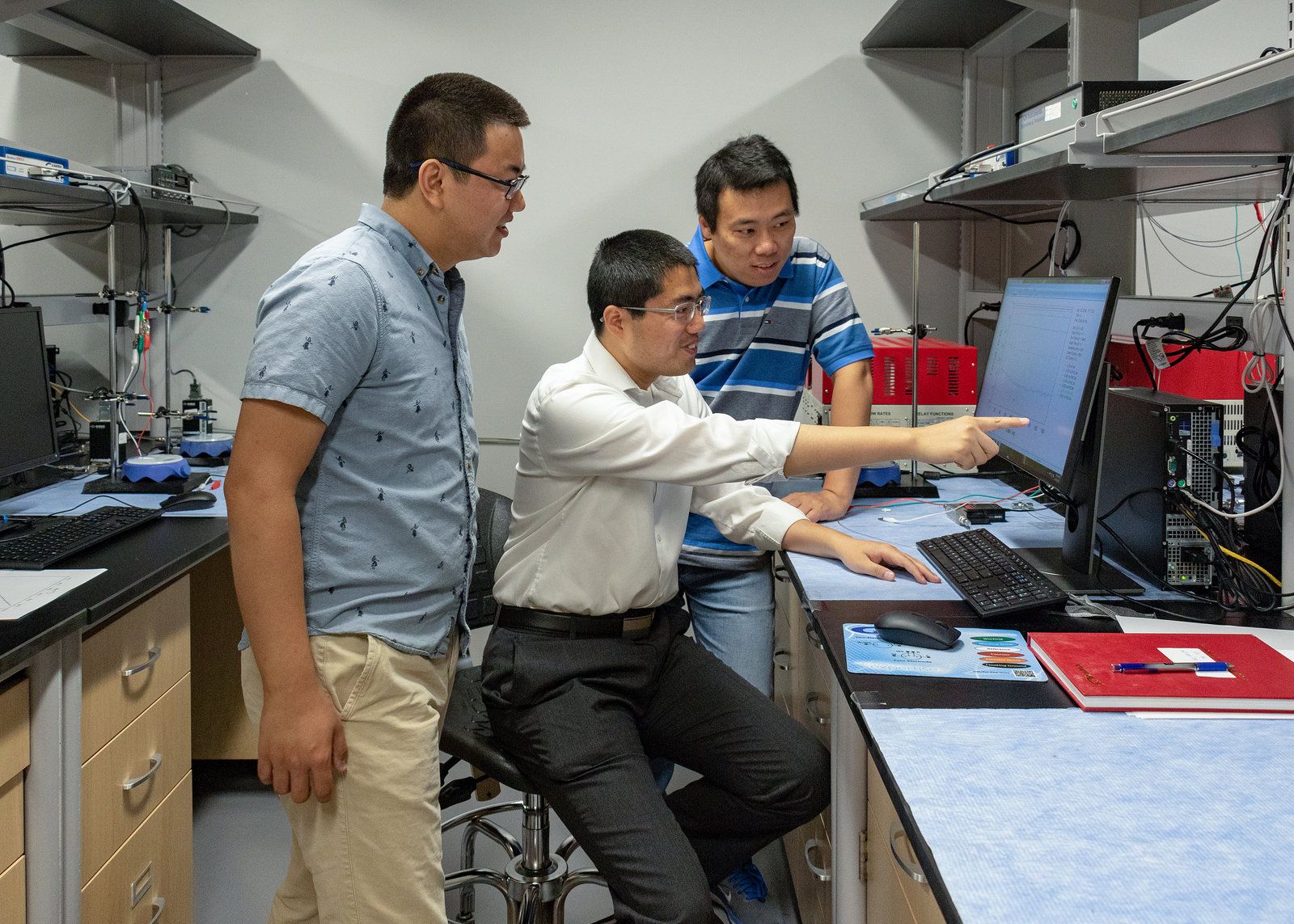A UCF research team with collaborators at Virginia Tech have developed a new “green” approach to making ammonia that may help make feeding the rising world population more sustainable.
“This new approach can facilitate ammonia production using renewable energy, such as electricity generated from solar or wind,” said physics Assistant Professor Xiaofeng Feng. “Basically, this new approach can help advance a sustainable development of our human society.”
Ammonia, a compound of nitrogen and hydrogen, is essential to all life on the planet and is a vital ingredient in most fertilizers used for food production. Since World War I, the ammonia in fertilizer has been primarily produced using the Haber-Bosch method, which is energy and fossil-fuel intensive. There have been substantial obstacles to improving the process, until now.
